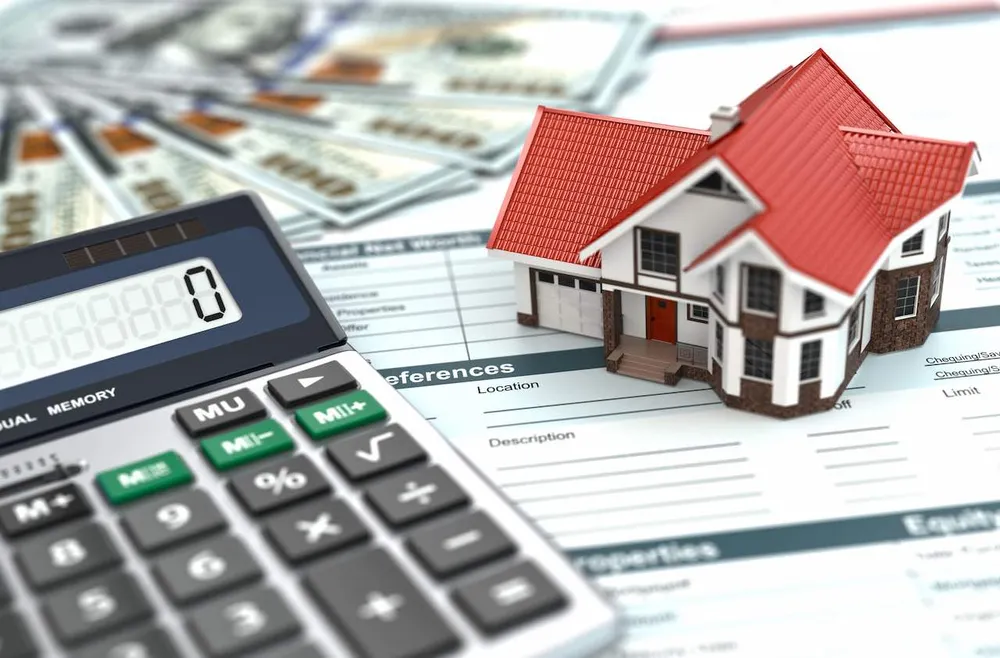
Increase in revenue
The People's Committee of Ho Chi Minh City recently submitted to the Government a pilot resolution on policies to create more development work in the city. This Resolution is set to replace Resolution 54/2017/QH14. After five years of implementing Resolution 54, Ho Chi Minh City has achieved some good results, although it has still lagged behind in many goals, especially in policies for the city to mobilize resources for land and space still lying vacant. Based on the opinions of many organizations, ministries, sectors, experts, and related agencies, the People's Committee of Ho Chi Minh City has now proposed that the contents of this draft Resolution replace those in Resolution 54 in the near future.
The important feature of the new Resolution is the plan to generate more revenue for the budget and increase autonomy in allocating local budget for projects in Ho Chi Minh City. Specifically, the city proposes to have the right to decide on additional tax for land use rights and for property owners on land for a second real estate. At the same time, this is meant to increase more sustainable revenue for the local budget, limit speculation and abandonment of houses and residential land in real estate projects, which has been causing huge waste of social resources. This regulation is in line with international practices when the real estate tax is only used to invest in improving the welfare of the people in the locality from where the tax revenue is actually generated.
It is not just in Ho Chi Minh City but also in many other provinces and cities where the situation of finished or unfinished houses and land is not being put into operation, including property managed by the State. As noted by Saigon Investment, the buildings and villas in Ho Chi Minh City in some districts such as Binh Chanh, Tan Phu, and Thu Duc city have been completed and bought by people but not yet put into use. Mr. Nguyễn Toàn Thắng, Director of the Department of Natural Resources and Environment of Ho Chi Minh City, said that this situation has caused a lot of waste of land resources, making the general appearance of the city rather sloppy. Despite this, the recent sanctions are still not strong enough to overcome this situation.
Mr. Trần Minh Hoàng, Chairman of Vinaland, agreed with the above opinion and said there are two reasons given by Ho Chi Minh City for this proposal. First, taxation will help limit speculation, abandoning of houses and land in real estate projects, and wasting of precious social resources. Second, this tax will help the city increase its budget revenue which can then be used effectively for further investment and development projects.
Inappropriate time
According to Mr. Trần Minh Hoàng, tax on the second house or on more than two properties is necessary, but the current time is not appropriate for such a tax to be implemented. For Ho Chi Minh City, the second real estate tax will not be able to solve speculation but will instead drag down real estate prices. Therefore, the above policy needs time for analysis and for more detailed study. Currently, the real estate market is facing many difficulties and a new tax rule will not encourage investors. This revised tax policy will certainly affect the real estate market, including investor sentiments. Depending on the tax base applied to any type of real estate, investors will recalculate where to put in their money in the future.
Taxation of real estate property opens up positive signs of increase in budget revenue, and also helps correct the market. However, the most concerned issue is still whether the new tax will help lower house prices and bring benefit to the people. This is clearly a difficult question right now which only time can answer.
Many people also think that the application method of this tax must be given further serious thought, such as how to manage tax and determine list of those who own a second real estate. To do this, land management data must be synchronized, and how much to tax for large and small areas needs to be decided. Such matters need careful reference to models in other countries so as to limit speculation without negatively affecting the market.
In addition, if a tax on a second house becomes necessary then all data must be digitalized for the real estate market, and the properties of all persons must be listed. The real estate market must be made very transparent concerning market prices. Factors such as how much a minimum area is priced in a large apartment as compared to smaller apartments must be made clear for the market.
Further analysis shows that many experts believe that tax should be applied to the entire country. If it is applied to only Ho Chi Minh City, the money will flow to real estate in other provinces. If only Ho Chi Minh City applies this new taxation law, then it will lose substantial budget revenue and also lose further investments. The amount of money collected at present is very little, and if investors choose suburban provinces over Ho Chi Minh City then the capital expected for Ho Chi Minh City will be lost. This will also negatively affect the real estate market in the city, which is the largest economic hub of the country.
Previously, the Ho Chi Minh City Real Estate Association (HoREA) had sent an official letter to the Prime Minister proposing a property tax to correct the real estate market. People who are slow to put land into use would be taxed in order to eliminate speculation and price manipulation. However, many negative opinions are currently floating even as the debate continues on the new proposal to tax a second property of an individual.




















